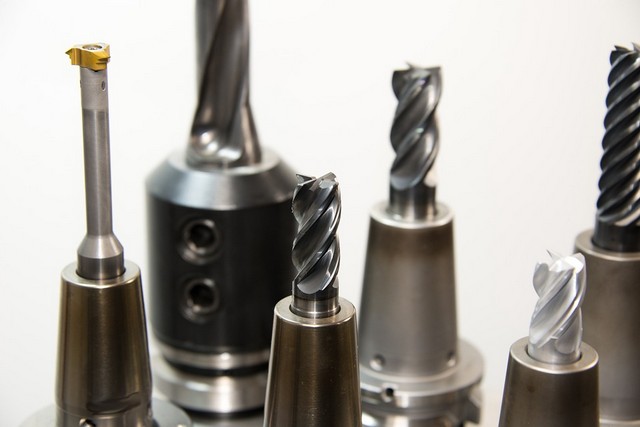It’s only natural to want the best brands when you’re looking to purchase anything. This holds especially true for equipment and tools of all kinds, as a reputed brand means excellent quality, durability and most often, a great price too!

With the many popular brands out there, it can be hard to figure out which one is the best. However, two names that often come up in these conversations are Ridgid and DeWalt and a comparison between these two is definitely worth a shot if you’re looking to invest in some heavy machinery!
Ridgid and DeWalt: A Brief History
Though both American-born brands are literal neighbors—DeWalt comes from Pennsylvania and Ridgid from Ohio—their stories are quite different.
First on our list is Ridgid, owned by the Ridge Tool Company and quite an old brand—its initial days can be traced all the way back to 1923 North Ridgeville Ohio!
The company has made long strides ever since, becoming a subsidiary owned entirely by Emerson Electric, a regular feature on the Fortune 500 list.
Ridgid makes a range of different tools—well over 300 types—specializing in construction, HVAC system, pipe fitting and plumbing. Its pipe wrenches, especially, are hot sellers, known for their distinctive and innovative nature.
The company also found popularity in the 1900s with its pliers, pipe cutters and other tools. The parent company, Emerson Electric (it acquired Ridgid in the 1960s), takes care of the dry and wet vacs, whereas TTI makes the power tools.
Though still “small” in the business sense, with only around 300 employees and an annual turnover of around 46 million dollars, Ridgid is an extremely popular go to for many folks looking for tools.
Up against Ridgid today is DeWalt, another go-to for power tools and equipment! This American company, founded by Raymond DeWalt (also the inventor of the radial arm saw, FYI!) in 1923, has a global presence. Changing to DeWalt Inc in 1947, the company is now owned by Stanley Black and Decker.

DeWalt makes over 200 types of power tools and accessories and hand tools in the thousands and hundreds! However, most of these tools are meant for professional use, which could explain why the brand is viewed as a luxury brand of the parent company.
The brand found prominence with its radial arm saw and heavy-duty stationary tools, rising among the ranks in the 30s, 40s and 50s.
DeWalt is considerably bigger than Ridgid, with an employee base of 13,000. The brand was also the first to introduce a hybrid battery pack meant for cordless tools.
Ridgid vs DeWalt
Quality
First up for quality checks is Ridgid. As mentioned earlier, Ridgid’s tools, especially their power tools, are made by TTI, though the brand is owned by Emerson Electric and the products are sold under the Ridgid name.
Long story short, it would seem that most of Ridgid’s tools, if not all of them, are made in China.
Though outsourcing manufacturing to a country that has its share of controversy going for it, especially with regard to labor and quality, the move seems to have worked for Ridgid, with many customers praising the company’s offerings. Their cordless tools, especially, have won the brand quite a few fans.

Ridgid, though it makes many professional tools, is known for its light-duty power tools that are great for a range of everyday jobs. Despite the lack of fancy specifications and features, Ridgid is popular for its reasonable pricing, convenience and durability.
DeWalt, as a larger business, also has more manufacturing power. The company has production facilities across the globe, from Mexico to China to the Czech Republic to Italy to the UK to Brazil to many plants in the motherland too!
This means that DeWalt’s tools are a great mix of Global South and Global North quality, with more being made in the latter region.
Given the higher standards of Europe and the United States, this means better quality.
However, this quality comes at a price and quite a heavy one, but many customers agree that the quality is completely worth the price tag. Additionally, the tools are made for heavy-duty usage, which explains the equally heavy pricing.
Ultimately, if you’re looking for basic tools that are of decent quality, Ridgid is a great bet, but if you’re willing to shell out the money, DeWalt is a better bet.
Product Line
Quite obvious is the fact that DeWalt has a larger selection of tools to offer, being the bigger company and manufacturer.
Therefore, while Ridgid does have a larger and better selection of plumbing tools and wet/dry vacs, DeWalt has a larger and better selection of everything else—lawn and garden equipment, string trimmers, construction tools, gear, corded and cordless tools, equipment and lumber tools.
If you’re looking for drills in particular—since both brands are known for them—DeWalt again emerges the winner, offering around 80 options (corded and cordless) compared to Ridgid’s 10.
Additionally, DeWalt drills feel better in your hand, despite being around the same weight as Ridgid’s offerings. The latter does seem to be a little bulkier and can feel quite cumbersome when you have long hours of drilling (6-8) around you.

Another popular offering from both companies is their combo kits. In this area, Ridgid slightly triumphs over DeWalt—though the former’s kits are a little heavier, their movement down the plane is better and more precise than DeWalt’s combo kit offerings.
If you’re looking for a reciprocating saw, DeWalt has a great one that you can squeeze quite a lot out of. It also affords the user more control and comfort than Ridgid’s.
If you’re looking for planers and other power tools, DeWalt still wins in terms of a good selection—8 planers compared to 2. Lastly, if you’re considering investing in table saws and miters saws, DeWalt is still the winner hands down, with 7 table saws compared to 3 and 14 miter saws compared to 5.
Given all of this, DeWalt emerges the clear victor when it comes to product lines, for its range of products, wider selection and better quality and comfort.
Warranty Deal
While warranty may not seem like such a big deal on other objects and purchases, it’s quite an important factor to consider when buying equipment and tools.
A good warranty should be offered by the brand, either a lifetime one or limited.
The majority of Ridgid’s tools are covered by warranty, full lifetime or a limited lifetime. Warranties can also come covered by lifetime service agreements and 3-year limited warranties.
DeWalt has some excellent warranty deals too—tools feature a 30-day money-back guarantee, mechanic’s tools feature a full lifetime warranty and other tools feature limited lifetime warranties.
A majority of the power tools come with limited 3-year warranties and hand tools with 7-year limited liability warranties on them.

Ultimately, while DeWalt and Ridgid both offer great deals on warranty, DeWalt again emerges victorious in this race, with better coverage and damage control.
Price
As mentioned earlier, DeWalt is the more expensive brand. This is for many reasons—it’s a large company with nearly 5 times the amount of employees and manufacturing plants across the world, as we’ve seen.
Additionally, DeWalt’s tools are meant for professional use—tools of that scale warrant a heavy price tag.
Ridgid is more reasonably priced, but the quality may not be as great as DeWalt’s, even if it is considerably great, especially for products manufactured in the Global South.
Ultimately, which brand you pick depends on your budget.
Many folks find paying the premium for DeWalt to be worth it, but if you simply can’t afford it, Ridgid is the way to go.
And no, you don’t need to feel short-changed or like you’re settling/compromising by picking Ridgid in this case—just because you’re not picking the winning quality, it doesn’t change the fact that you’re still getting extremely great quality for your money.
The Bottom Line
At the end of the day, both DeWalt and Ridgid are excellent brands for your tool needs, but it can’t be denied that one does stand out over the other quite evidently and if you guessed DeWalt, you guessed right!
When it comes to quality, overall product portfolio and selection and warranties, DeWalt is the brand to beat.
The brand’s products are all high-end—great-looking, great functionality, durability, versatility and quite fancy. Despite its wider range of offerings, there is no let down on the quality of any of the products.
The only drawback, if at all, is the pricing—DeWalt’s products are quite expensive compared to Ridgid. As mentioned, this is also because DeWalt’s tools are meant for professional use.
However, having said that, if you’re looking for light-duty tools for regular usage that won’t cost you a fortune and burn a hole straight through your pocket, Ridgid is a superb bet.
We get that it can be quite frustrating deciding which brand to pick. It can be tempting to skim through article after article, buyer’s guides, comments sections and listings, only to end up more confused than before.
A good way to ensure that you’re not just falling for reviews and guides, though and that you are, indeed, buying a tool to fit your needs—assess your needs, your available budget, the warranty being offered and your preferences before you zero in on the brand.
At the end of the day, you don’t just want a product that’s the best in the market and for your money—you want a product that actually fits your needs!
So, of the two mammoths, it’s left to you which one you choose for your needs. Just remember that both brands, though similar, offer distinctly different things to customers—based on what you prioritize and what is important to you, you’ll find a winner quite easily for your needs!
